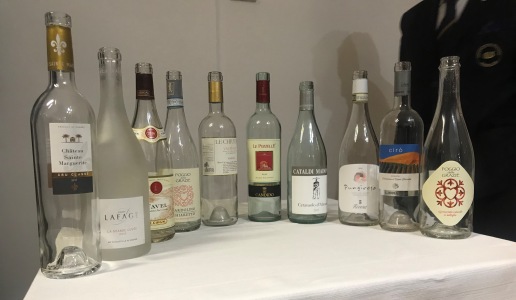A guide to rosé wines
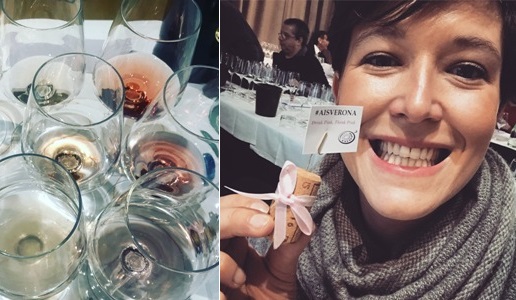
Notes from Angelo Peretti’s lectio magistralis during the Drink Pink, Think Pink! event organized by AIS Verona.
In view of the Anteprima Chiaretto event of the Tutela Chiaretto and Bardolino producers’ association, March 10 and 11 in Lazise in Dogana Veneto, allow me to sum up what I have learned these past few months about pink wine in the hope of shedding light and paying proper attention to a wine category this is still too much of a niche.
The inspiration for this article came from the Drink Pink, Think Pink! event staged by AIS (Italian Sommeliers’ Association) Verona chapter on February 7. It was organized by Franca Beratni and Paolo Bortolazzi of AIS Verona and thelectio magistralis was impeccably conducted by Angelo Peretti.
Pink wines
“Let us begin by calling things by their proper name and so let’s call these pink wines,” Peretti began. This not to be just politically correct but to establish its distinction from red and white wine, a linguistic must to resolve an all-to- often misunderstanding.
Consider “pink wine” as a giant umbrella, one beneath which are a host of single individuals. Each has their own specific characteristics that contribute to making the wine unique and different from all the others. These individuals come from all over Italy, north, central and southern, they have different parents and different histories. Some are related, others are just neighbors, still others never come into contact. These individuals have different names but what they do have in common is that they are all pink in color. Here we will get to know some of these individuals up close, from northern, central and southern Italy and this to understand why the term pink wine is the correct one while others are used incorrectly.
Chiaretto
Chiaretto is a wine produced on Lake Garda and is generally subject to brief or cold pre-fermentation maceration before fermenting off the skins. Pink and rosato are not synonymous when it comes to wine. A rosato wine, like Chiaretto, can be a pink wine but a pink wine is not necessarily a rosato.
Rosato
Rosato is a type of wine and for this reason the term cannot be used for a category of wine. Rosato is one of the individuals under the pink wine umbrella, it is NOT the umbrella. The term rosato can be found on the labels of different DOC wines (some famous southern ones include Salento Rosato, Salice Salentino Rosato, Castel del Monte Rosato and Cirò Rosato) and it often refers to a specific winemaking method with the wine or part of the wine initially fermenting briefly on the skins before fermentation off the skins.
Cerasuolo
In central Italy you can find Cerasuolo d’Abruzzo which is not a rosato (the term is never on the label) nor a Chiaretto because it is made from Montepulciano grapes using the saignée method and is made far from Lake Garda. Nevertheless, it is a pink wine because of its Cerasuolo (cherry pink) color.
Rosé
Rosé and pink are synonymous, one being the translation of the other. The only difference is that rosé refers to vins français whereas here pink will refer
only to equally extraordinary Italian wines.
Pink wine is a wine to all effects, one that is not easy to make and that needs specific and important interventions beginning with those in the vineyard. The wines offered at the AIS tasting further underscored the wealth and variety of pink wines found in Italy, about which still too little is known.
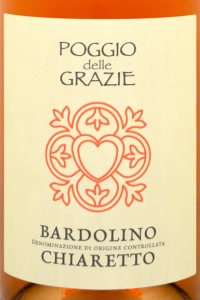 Bardolino Chiaretto 2016 Poggio delle Grazie
Bardolino Chiaretto 2016 Poggio delle Grazie
89/100 - € 13
A bend of 70% Corvina and 30% Rondinella grape that cold macerate for 8-10 hours to the mature on the lees for three months. The wine has a classic, clear pink color and a bouquet of aromatic herbs and balsamic hints that at times are even spicy. The mouthfeel is pure tension, a demonstration that, as Peretti said, “the wines of Lake Garda are mountain wines” at least in regard to soil.
The tasting also saw the surprise presentation of the Garda estate’s latest experiment, a prototype of a sparking Chiaretto made using the Ancestral Method, something new to discover.
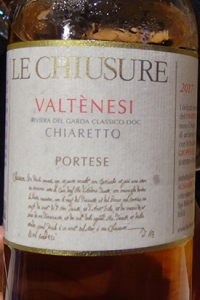 Valtènesi Riviera del Garda Classico Chiaretto Portese 2017 Le Chiusure
Valtènesi Riviera del Garda Classico Chiaretto Portese 2017 Le Chiusure
88/100 - € 8
Made from Groppello grapes with additions of Barbera and Sangiovese. The chilled grapes are placed directly in the press, confirmation that they were subject to very brief pre-fermentation maceration. The color is a bright makeup rouge and the aroma rounded and fruity, while the mouthfeel is consistent and has the addition of the “usual” salty note. Overall very fruity and less nervous than neighboring Chiaretto.
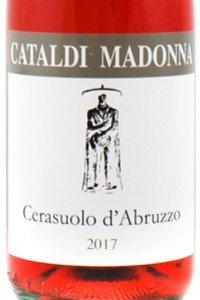 Cerasuolo d’Abruzzo 2017 Cataldi Madonna
Cerasuolo d’Abruzzo 2017 Cataldi Madonna
90/100 - € 10
Made from Montepulciano grapes and matured in stainless steel. The sensations in this wine are more amplified and not just because of the varietal. The color of this Cerasuolo is bolder and the bouquet more complex, with fruity, floral, salty, aromatic and even balsamic notes. It was a pleasure to swirl in the glass and go back and taste every once in a while.
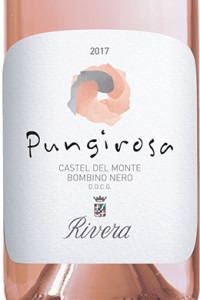 Castel del Monte Rosato Pungirosa 2017 Rivera
Castel del Monte Rosato Pungirosa 2017 Rivera
85/100 - € 6
Made from Bombino Nero grapes, a variety that tends to not ripen uniformly and is suited for making a rosato. The wine has an onion-skin color with pink reflections and aromas of violets and ripe fruit, more yellow than red. The mouthfeel has no lack of acidity that gives it freshness and makes it easy to drink.
This DOC wine is named after the famous octagonal castle commissioned by Frederick II of Swabia and that is depicted on the 1-euro cent coin.
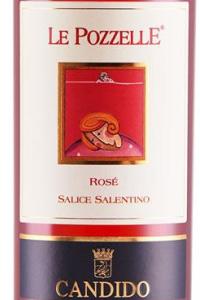 Salice Salentino Rosato Le Pozzelle 2017 Candido
Salice Salentino Rosato Le Pozzelle 2017 Candido
89/100 - € 9
A traditional blend of 95% Negroamaro and 5% Malvasia Nera that macerates for some 20 hours on the skins to give it the unmistakable color that is typical of Puglia rosato wines: an intense and bright coral pink. The aromas of rosemary and lavender are fresh as is the mouthfeel.
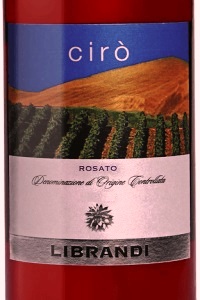 Cirò Rosato 2017 Librandi
Cirò Rosato 2017 Librandi
88/100 - € 6
Made from Gaglioppo grapes using the saignée method with brief maceration. The color is an intense onion skin and the aroma recalls Saturn peach that later leaves room for notes that are grassier and less sweet. The mouthfeel has a sweet yet dry attack due to the sensation of juicy fruit but what remains in the mouth are freshness and cleanliness.
The tasting also offered three French rosé wines. One was Cuvée Château Rosé Cru Classé 2017 Château Sainte Marguerite, the only problem here was that it disappeared too fast. The second was La Grande Cuvée 2017 Domaine Lafage, unmistakable, which I drank in December and can confirm my positive impression. The last was a Tavel 2016 E. Guigal, which was perhaps the one that intrigued me the most and I can’t wait to taste it again to see if in the future it will still have those notes of black cherry that were so distinct that if I close my eyes I can still sense them in my nose and mouth.

 Italiano
Italiano

.JPG)
